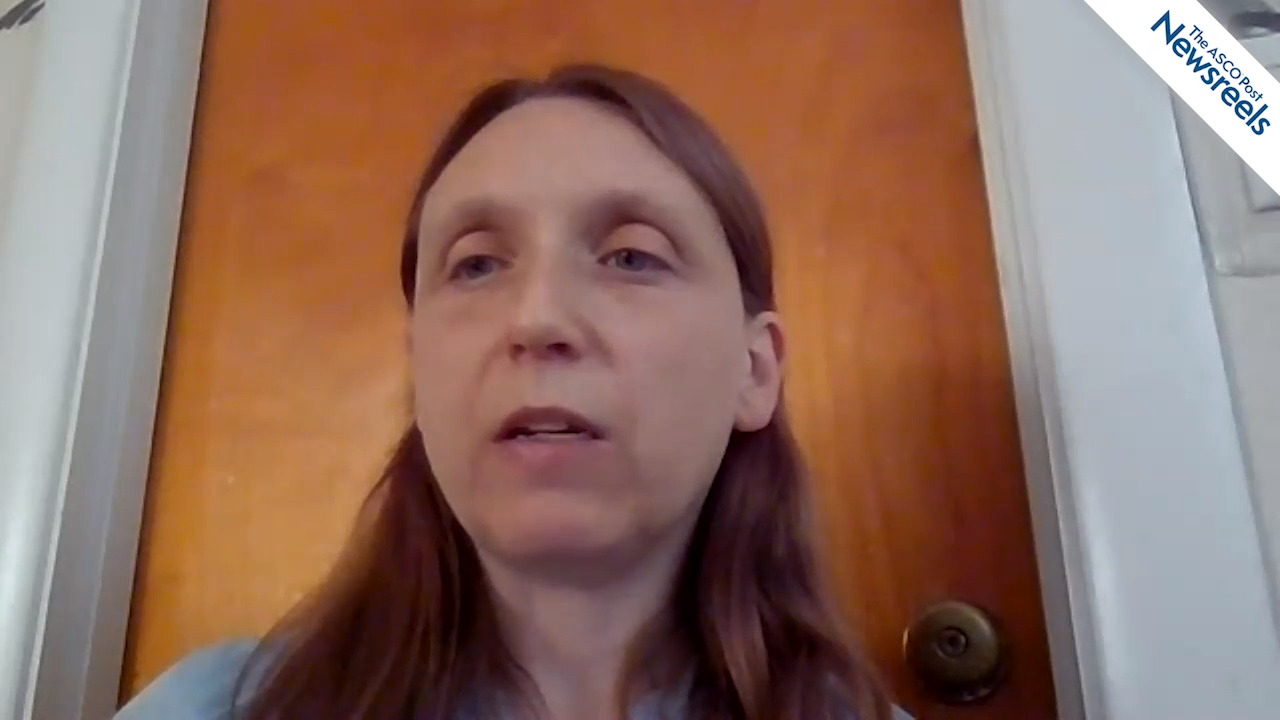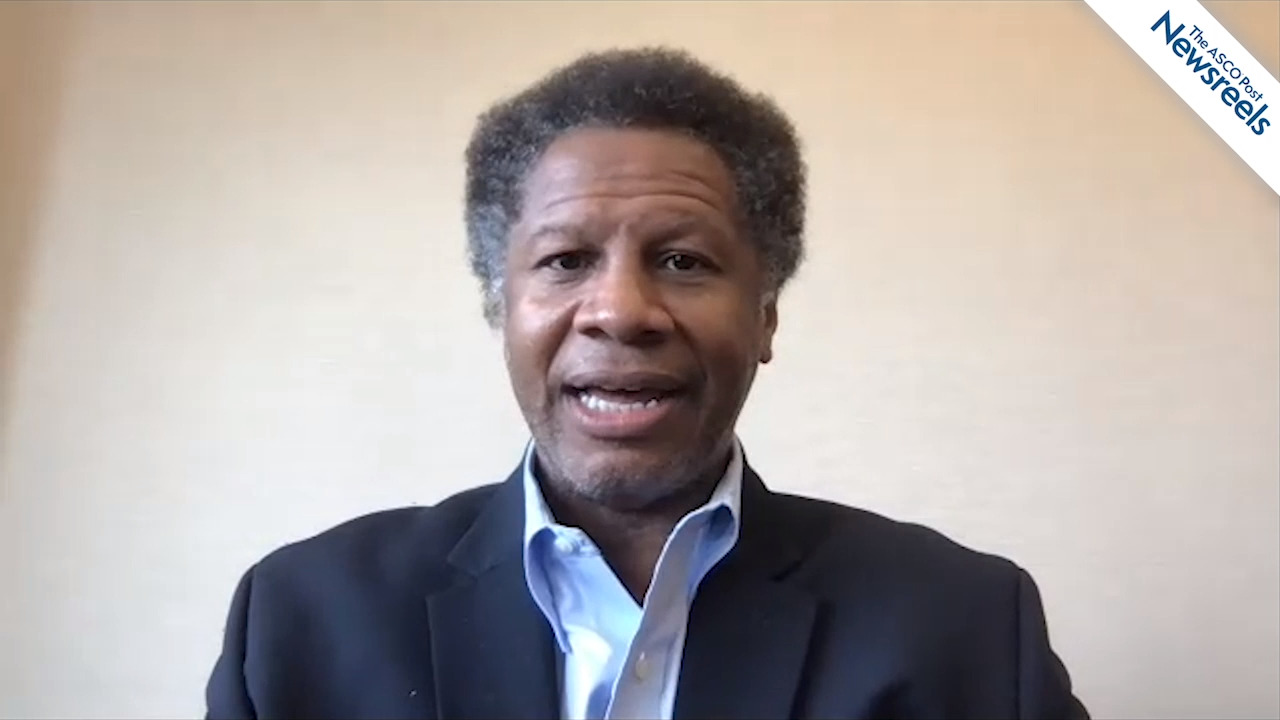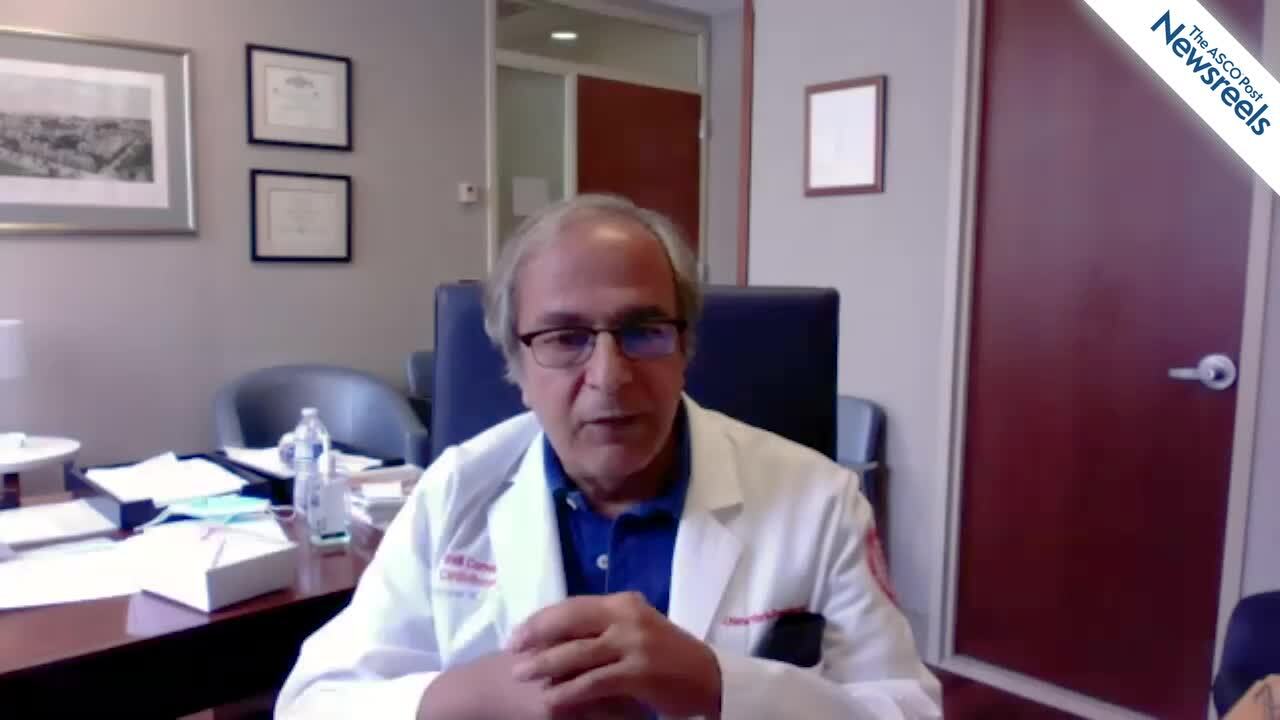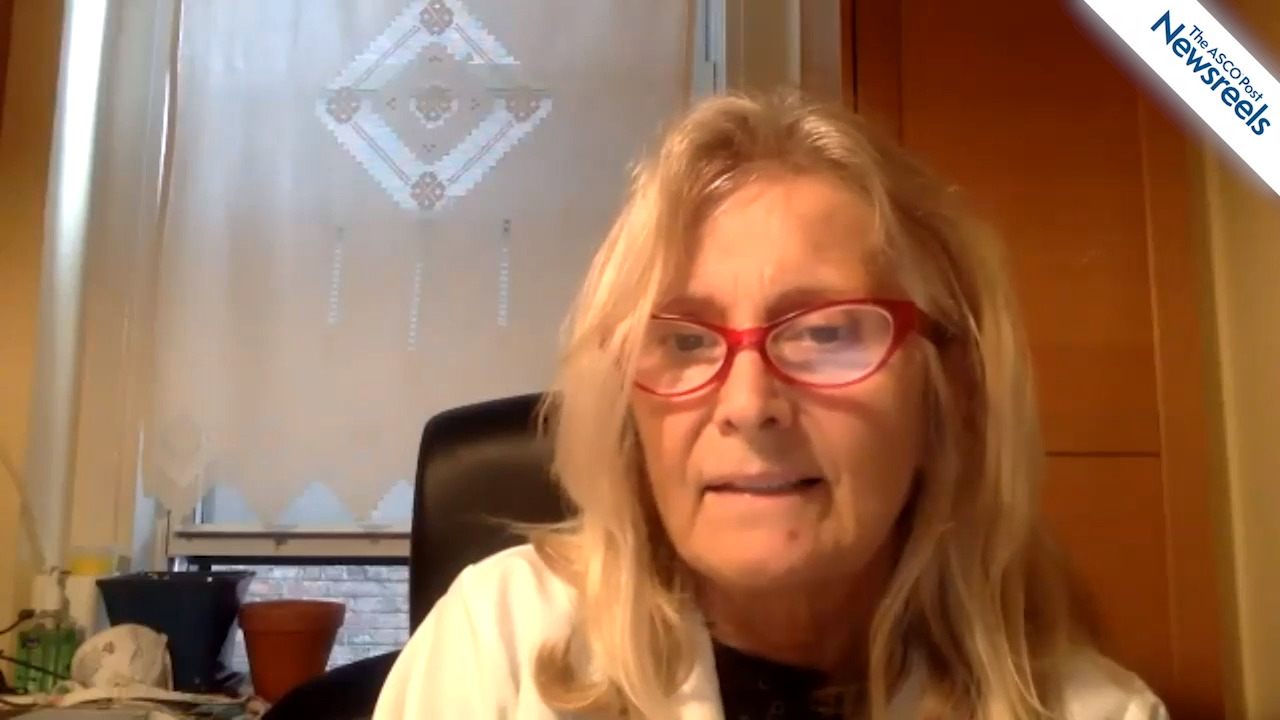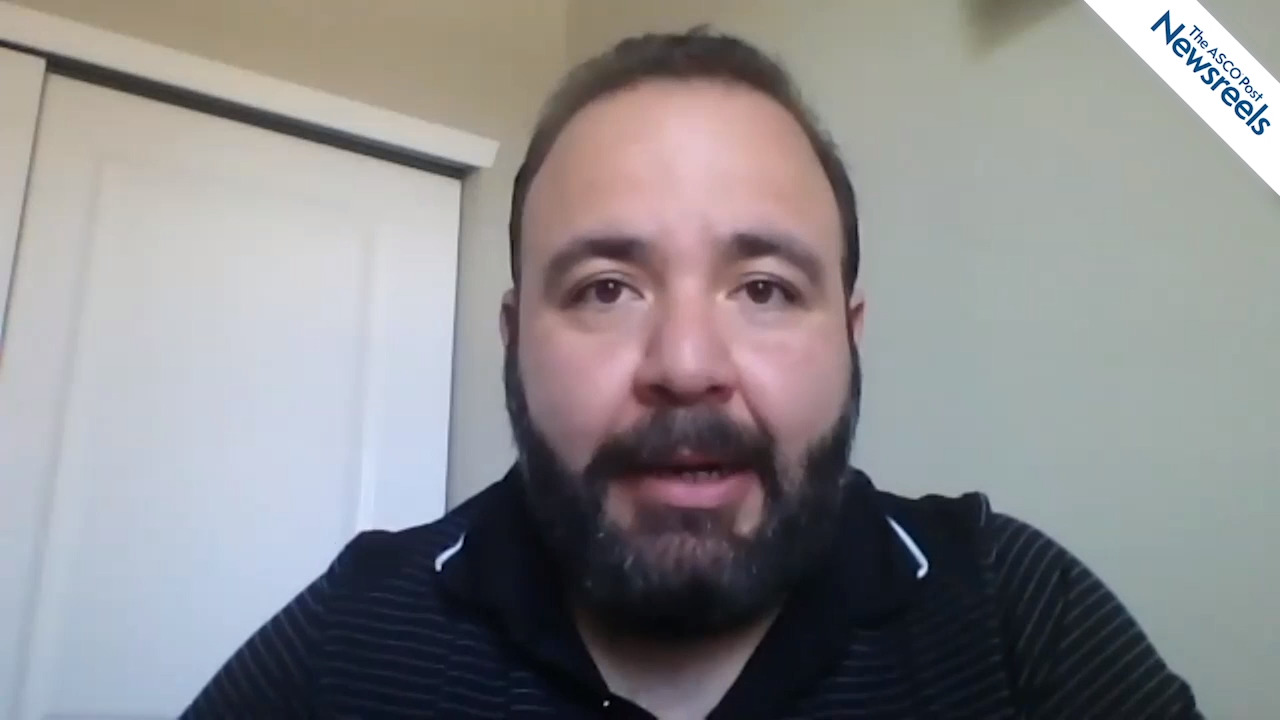Ramaswamy Govindan, MD, on Differences Among Male and Female Patients With Lung Cancer
AACR Virtual Annual Meeting 2020 II
Ramaswamy Govindan, MD, of Washington University School of Medicine, discusses sex differences in lung cancer, including variations in treatment response, and the state of research in the field (Session ED20).
The ASCO Post Staff
Elizabeth H. Stover, MD, PhD, of Dana-Farber Cancer Institute, discusses an analysis of genomic alterations in patients with relapsed ovarian cancer who were treated with nivolumab plus bevacizumab in a phase II clinical trial. The study was conducted to identify potential biomarkers of response (Abstract 1048).
The ASCO Post Staff
Robert A. Winn, MD, of Virginia Commonwealth University and the Massey Cancer Center, discusses the COVID-19 pandemic and how it is exacerbating disparities in cancer care among racial and ethnic minorities and the medically underserved who are disproportionately affected by the coronavirus (Session VSS06).
The ASCO Post Staff
Nasser K. Altorki, MD, of Weill Cornell Medical College, discusses study findings that suggest neoadjuvant low-dose focal stereotactic body radiation plus immune checkpoint blockade (ICB) is safe and causes no surgical delays in early-stage lung cancer, and that major pathologic response rates are likely to be comparable to those with chemotherapy/ICB combinations (Session ED37).
The ASCO Post Staff
Silvia Formenti, MD, of Weill Cornell Medical College, discusses her continuing work, and the promising results emerging, in combining radiotherapy with immunotherapy to boost abscopal response rates. This combination therapy extends the use of radiotherapy to promote antitumor T-cell responses for both local and metastatic disease (Session ED37).
The ASCO Post Staff
Alfonso Bencomo Álvarez, PhD, of Texas Tech University Health Sciences Center, discusses his retrospective study of the incidence and survival for patients with hematologic malignancies residing at the United States/Mexico border. The analysis showed that 10-year survival rates for Hispanic patients with ALL, AML, and CML were significantly lower for those who lived in El Paso than for those who lived elsewhere in Texas (Abstract 4343).
